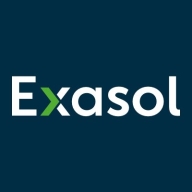

MySQL and Exasol Data Warehouse are competing data storage solutions. Exasol appears to have the upper hand in analytics and speed for advanced data processing, whereas MySQL is favored for its cost-effectiveness and versatility in application support.
Features: MySQL supports a wide range of platforms, is known for its integration with LAMP/WAMP stacks, and provides easy setup with Memcached, enhancing performance and scalability. It is an open-source solution offering high flexibility and support for complex querying requirements. Exasol provides excellent scalability and high-performance analytics, especially for large data sets, making it suitable for heavy analytic workloads. Its real-time analytics capabilities ensure quick data processing and insight generation.
Room for Improvement: MySQL's performance can degrade with massive data volumes, and it lacks some advanced analytics features found in purpose-built data warehouses. Its storage engine architecture, while adaptable, might benefit from additional optimization for large data sets. Exasol could enhance its flexibility for various development environments and improve ease of integration with diverse application stacks. The complexity of setting up Exasol for smaller-scale environments may be reduced to appeal to a broader range of users.
Ease of Deployment and Customer Service: MySQL benefits from a straightforward deployment process, supported by extensive community resources and documentation. Its widespread usage ensures a wealth of tutorials and support materials. Exasol deployment can be complex due to its focus on substantial analytic operations, but it offers dedicated customer support to assist users through the process.
Pricing and ROI: MySQL's open-source nature and no licensing cost result in low initial expenses and a positive ROI, especially in simpler environments. Exasol, though requiring a higher initial investment due to its premium analytic features, delivers improved ROI through efficient data processing for data-intensive operations, justifying the cost by providing valuable insights and advanced capabilities for users excited about data-driven decision-making.


Exasol is a high-performance data warehouse solution that accelerates BI and reporting features. Its speed, stability, and self-tuning queries make it valuable, and it doesn't require a database administrator. It's a backend database for Tableau dashboards, resulting in faster report loading times and increased efficiency in querying data.
Exasol's high performance allows users to connect insights and fire queries instead of looking at cached dashboards. It has impressive aggregation capabilities that help calculate metrics on the fly based on user-selected filters.
MySQL is a cost-efficient and scalable relational database management system widely used in web, mobile applications, and academic projects.
MySQL is utilized for backend operations, data analysis, reporting, financial transactions, and ERP databases. It supports deployment on local servers, Cloud, and Kubernetes. Its free, open-source nature along with strong community support make it popular among companies. MySQL's compatibility with multiple platforms and programming languages enhances its appeal. While it remains stable and easy to use, areas such as replication, clustering, and backup require improvement to better serve enterprise applications. Enhanced security, error messages, and monitoring tools are also desired for a better user experience.
What are the most important features of MySQL?In multiple industries, MySQL supports internal applications, billing systems, academic teaching purposes, and ERP databases. Companies leverage MySQL for Cloud and local deployments, ensuring effective data manipulation and backend operations in diverse projects. Its role in financial transactions and reporting further emphasizes its versatility.
We monitor all Relational Databases Tools reviews to prevent fraudulent reviews and keep review quality high. We do not post reviews by company employees or direct competitors. We validate each review for authenticity via cross-reference with LinkedIn, and personal follow-up with the reviewer when necessary.